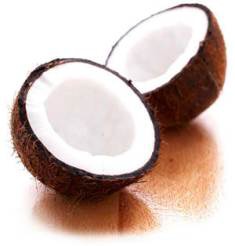
Dr Kaku Kyiamah, a renowned Food Scientist has revealed that Autism Spectrum Disorder (ASD), a developmental disability caused by differences in the brain can be treated with the appropriate diet and support.
He noted that designed meaningful dietary strategies based on short and medium chain saturated fatty acids, found mainly in breast milk, coconut oil and palm kernel oil can manage, cure and even prevent autism.
Speaking to the Ghana News Agency, Dr Kyiamah explained that to avoid autism, breast feeding was very essential and should be undertaken for about two years and the breast milk should contain very high levels of saturated fatty acids and the mono unsaturated oleic acid with little or no long chain poly unsaturated fatty acids.
“A careful analysis of various studies and recommendations indicates that appropriate diet with patience and support from the parents can heal autism”, he added.
Autism Spectrum Disorder is a developmental disability caused by differences in the brain. Scientists do not know yet exactly what causes these differences for most people with the disorder.
However, some people with ASD have a known difference, such as a genetic condition and there are multiple causes of ASD, although most are not yet known.
Dr Kyiamah, who described autism as the mother of all diseases, explained that, the disorder could be noticed between the ages of 15 to 36 months after birth.
He noted that a child below four years with autistic tendencies of his or her inability to walk or talk, can easily recover from such behavioural abnormalities by using foods containing high levels of short and medium chain saturated fatty acids and avoiding any food item with long or very long chain poly unsaturated fatty acids.
He advised that the complete elimination of processed unsaturated vegetable oils from the diet would aid in treating autism and recommended that specific carbohydrate diet, which eliminates long chain polyunsaturated fatty acids.
Dr Kyiamah hinted that coconut oil could be used in the treatment of autism, because it contained high amounts of Medium-Chain Triglycerides (MCT) rich in lauric acid and caprylic acid.
Coconut oil, he also explained, could reduce oxidative stress; supports the immune system, stimulates thyroid, controls blood sugar, improves cognition, repairs damaged tissues, supports healthy digestion and has powerful antifungal, antiviral, antimicrobial and antiparasitic activity.
“Coconut oil nourishes the brain; it helps with brain function, the repair and protection of the brain, facilitating proper functioning of neurotransmitters and more. As you can see, coconut oil can help with many of the underlying health conditions common in children with autism”, he added.
Dr Kyiamah advised parents with children with autism to consider using coconut oil and always pay particular attention to the little changes that occur in their children at a very tender age and offer the necessary care and support to such children.
Mr Alexander Akotia, a parent who has a 10 year-old autism child in a separate interview confirmed that coconut oil could be used to manage children with autism as well as giving them special attention.
He said his son, Shann, was diagnosed when he was about four years, after “we realised that his speech was not the best and did things the opposite”.
Mr Akotia explained that he was introduced to coconut oil and read widely about the disorder and the power of coconut and that has been the food supplement ever since.
He said he had introduced many families with autism children to coconut oil and there has been tremendous improvement in their speech and behaviour.
“My son is very interesting, brilliant, intelligent and adorable”, he added.
Mr Akotia urged parents with autism children to always have positive attitude and embrace the situation whole heartedly instead of attributing it to evil doing.
He asked potential mothers to look out for obvious signs associated with growing infants, adding “By this way, any abnormality which could be a sign of autism could be detected for early treatment and care”.